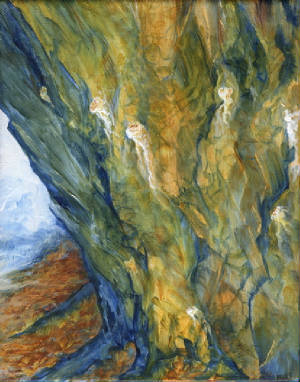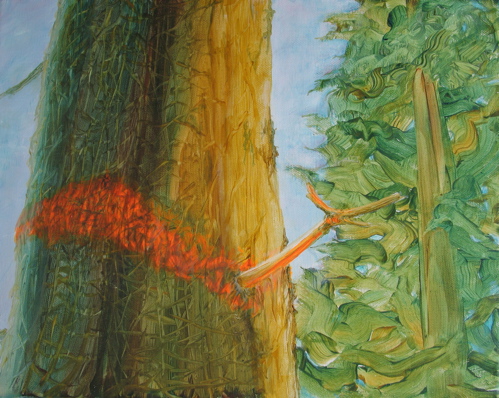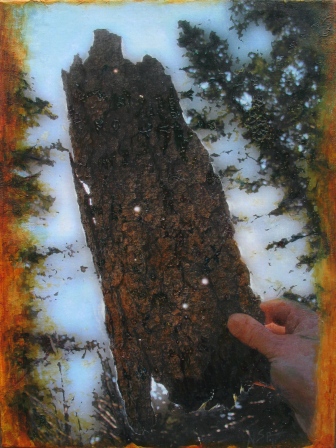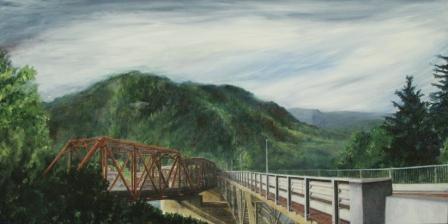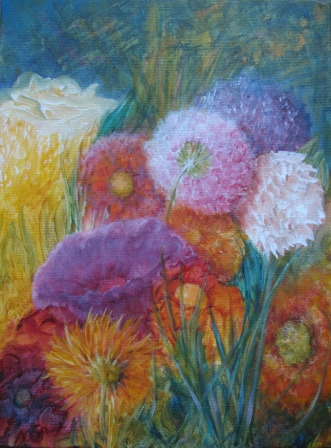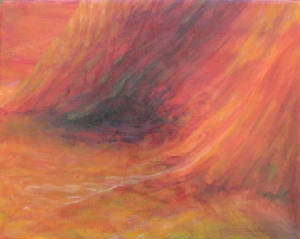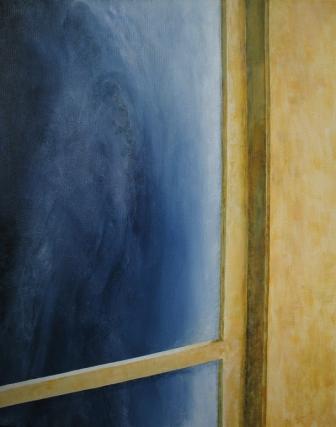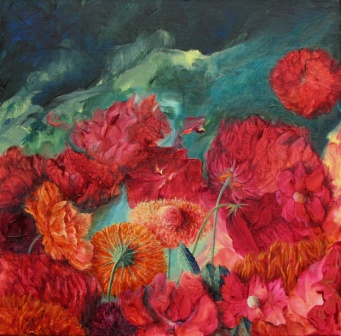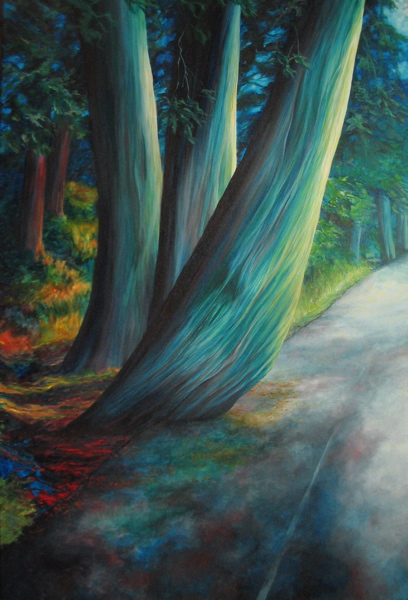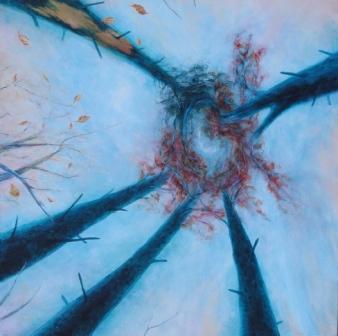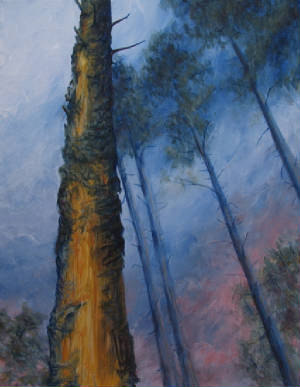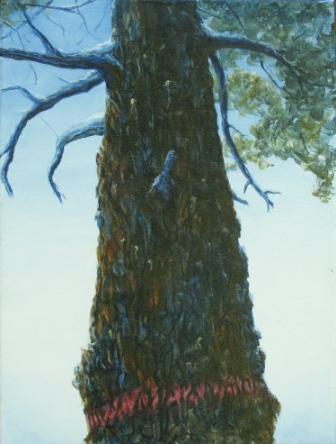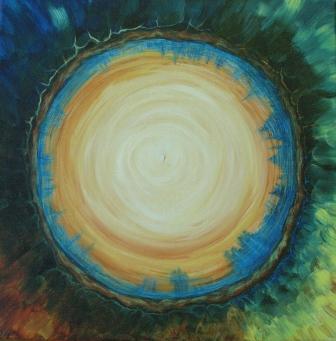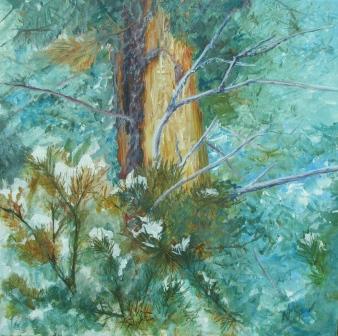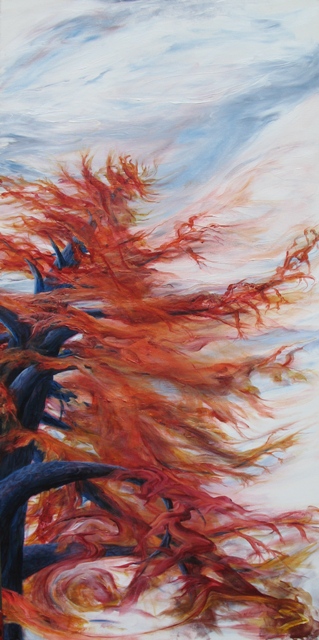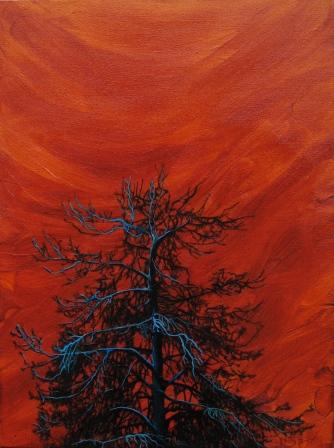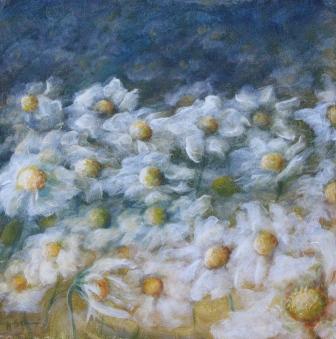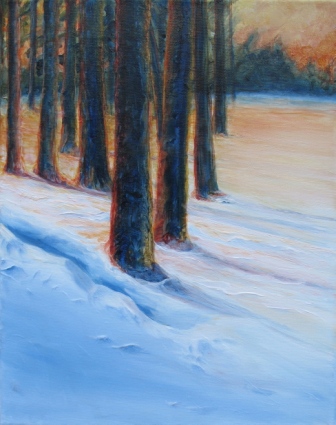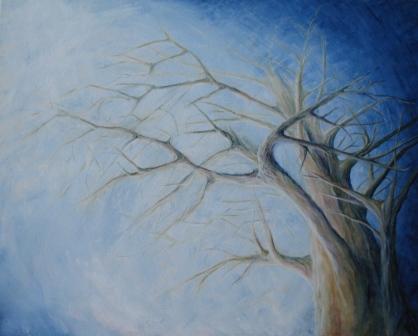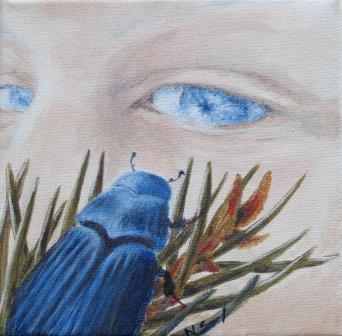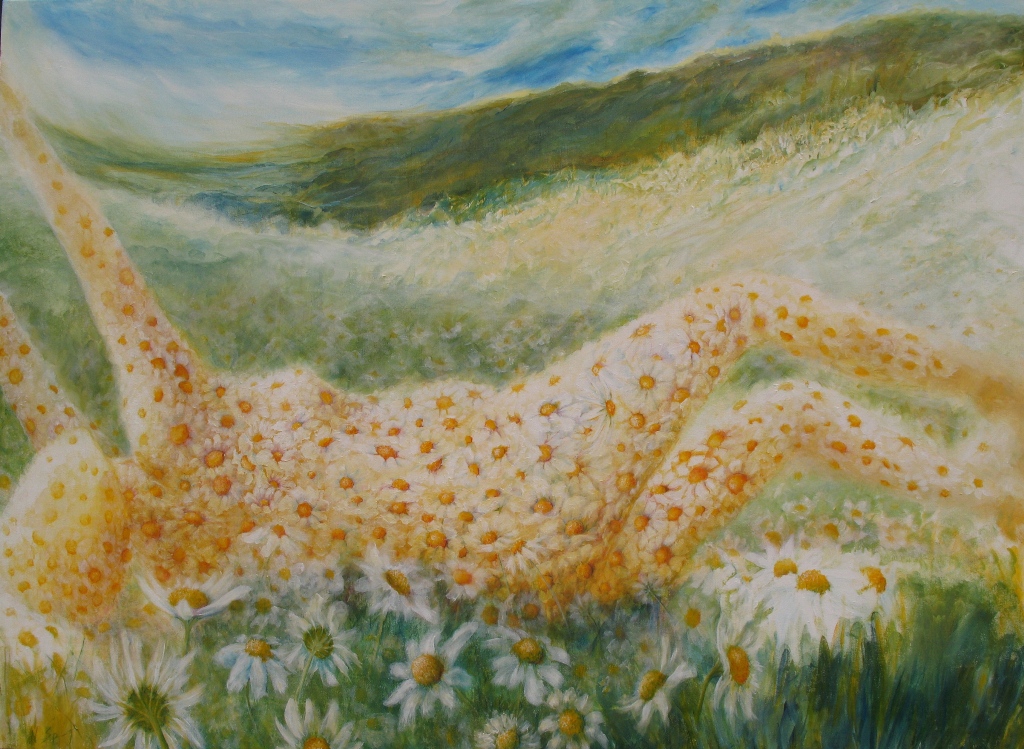|
|
Daisy Roller Salutes the Dead |
||||||||||||||||||||||||||||||||||||||||||||||||||||||||||||||||||||||||||||||||||
|
Forestry has been attempting to remove the beetled
trees on the east side of Terrace Mountain – one of the 1st areas in Terrace to be hit. At first it was just this one tree glowing orange with its denuded trunk – even before the red hit
the needles. In the spring, whole segments of the forest
were cut and smoke rose up from several spots on the mountain as beetles and hosts turned to ash. Despite that work, we are once again seeing growing stands of red. I feel the loss of each tree and respect the
efforts of the foresters to protect the remaining trees on the mountain. “I am doing what I can.” Dukduk Diya
When I was a child, Januaries in Terrace were cold, and the windows were
single pane. Sometimes our windows were so decorated with Jack Frost art that
we could barely see out. I used to imagine him on those cold winter nights. I thought he was skinny and tall, as tall as a house, but so thin that he never made
tracks in the snow. He wore old boots with the laces undone and raggedy black pants and a raggedy long black coat with an
old black hat. He was almost invisible.
You really had to look to see him. The only thing about him that stuck
out was his fingers. They glowed but he kept his hands in his pockets until he
was about to touch your window. That way you never noticed him, only the art
he was making. Jack Frost was one of the paintings I worked on while taking a break from the
constant focus on dying trees. I started this painting sideways just working on night sky over snow. When I’m
working I may attempt to trick my brain into really seeing by flipping the canvas. When I flipped this painting, there he was – the Jack of my childhood imaginings, complete
with that ‘looking inside you’ look and the half-smile
/half-frown, just getting ready to whip out his magic fingers… Jack Frost never comes to visit anymore.
Our well-insulated home with its energy efficient windows keeps him away. I
don’t miss the frigid house, but I do miss his art.
These cedars grew along the Stanley Park Seawall. It was obvious they were well loved by many besides me. There is the nice paved walkway but humans made another path circling the trees. The lean was perfect for children and I imagined them clambering up, testing themselves. The cedars are gone now, taken down in the massive
storm that hit Stanley Park. These trees bear a resemblance to many of the
beetle killed trees which were destroyed in an attempt to stop the spread. These
trees are gone too – for human safety and to keep the park “clean”.
Trees die, but usually they stay on for years, becoming nurse logs, feeding insects and the soil, and supporting an entire ecosystem as they slowly decay. When humans attempt to manage a forest, a tree’s
life can end long before it has finished being a tree. |
One of the first trees to be assaulted in Terrace
was on Terrace Mountain behind Sunny Hill trailer court. I saw it, a red flag
on the mountain, but since I had not yet heard that the beetles were here, I decided it must have been killed by something
else. In retrospect I wish I had walked up to have a look. The next year that tree had turned grey and the trees around it were all red. Pierce is a bit of interactive art. You choose which way is up. When you were a child, maybe you
were like me; in a forest copse, head tilted way back while spinning around. Spin
the painting and remember that sense of wonder and joy.
Adult
mountain pine beetles carry spores of blue stain fungi on their bodies. When they invade a tree the fungi begins
to attack the sapwood. Pine trees react with a resin flush into the primary wound
and produce new resin in the live cells in the vicinity of the wound. In a healthy tree which is not under mass attack, this is often enough
to repel or kill the invading beetles and isolate the fungi. Unchecked, the fungi
destroys the sapwood thereby reducing the tree's ability to produce a resin
flush and increasing the beetles' chance of survival. Normally mountain pine
beetles attack old or diseased trees.
They play a part in natural selection and in overall forest health. Their
numbers are largely kept in check by cold temperatures. The massive epidemic
we are now witnessing and the accompanying warming climate mean the beetles
are now attacking whole forests including young immature healthy trees. Within
2 - 3 weeks of an attack the sapwood exhibits a characteristic blue stain and is no longer able to function. Trees are killed by a combination of these fungi and by the girdling
damage to the bark.
I grew up on Agar Avenue and spent a great deal
of my time playing in the pine forests that ran the length of Pohle Ave which at that time was just a trail. I feel a stunning loss going down there now
and seeing so many trees missing. Last
Dance and Change in the Weather are both a tribute to one of those trees which
is now gone. Even in death it was full of spirit and life.
In grade 7 science class our teacher took us
into the forest on Tetrault Street. We were instructed to capture an insect and
then over the next several days to observe it, research it and write a report. I
picked a slug because I had no desire to try to grab something fast. A whole fascinating world opened up to me with
that slug. After my initial ick response
I began to really look at it and became awestruck by its beauty. I drew picture
after picture trying to capture the intricate design. I was moved by its incredible
vulnerability and its resiliency. I still remember fascinating facts like: -Snails and slugs have 25,000 teeth. If they break one, they grow a new one. (Sure explains what happens in the lettuce patch!) -They are hermaphrodites. When you move that slowly through the world it could be disastrous to finally meet up with another slug
and be unable to procreate. -If the weather turns dry, a snail can stop
up its shell with its foot and live for over 4 months without water. (I found
this to be true when a “pet” snail escaped in our house. I knew my
mom would not be happy about that news so I didn’t say anything and just kept discretely looking. I found him/her a month later behind a trunk, put it in a moist environment with some food and out it came
– no worse for wear. I released it into the lawn where I am sure it made
a shiny trail to the bean patch.) Tetrault Forest was the first place where art
met science for me. Ironically it was one of the first places to be hit by the
beetles and once again I was down there sketching and watching, reading and wondering. This exhibit has been two years in the making
and I am far from finished. I haven’t even begun to examine the beetles
– little Davids destroying Goliaths.
|
|||||||||||||||||||||||||||||||||||||||||||||||||||||||||||||||||||||||||||||||||
|
I first saw the endless sea of red, pine-beetle-attacked
trees in 2006 while on a trip through the interior. I was awestruck. I purchased a disposable camera and leaned
my head out the window snapping photos and gasping while my sister did all the driving. I wondered what it would feel like to stand in the
midst of an entire forest under assault. I found myself both horrified to see the massive scale and captivated by the
strange beauty – a coniferous autumn; a final autumn - and I wanted to paint those disappearing forests. When the pine beetles arrived in Terrace I began
to record my responses. I’m sad to see my childhood forests die yet I'm fascinated by the beauty as they go.
We still don’t know the full implication of
this massive infestation. This is an unprecedented environmental event in British
Columbia. I’m attempting to record my emotional reaction and to document
this period in BC’s forests, using art. The exhibit “Daisy Roller Salutes the
Dead” is my homage to the pine beetled trees as well as an acknowledgement that daisy rolling is about reveling in life,
taking each day as it comes, rolling down the hill and seeing where it takes you. Daisy rolling may well be the real
purpose of life. |
||||||||||||||||||||||||||||||||||||||||||||||||||||||||||||||||||||||||||||||||||

